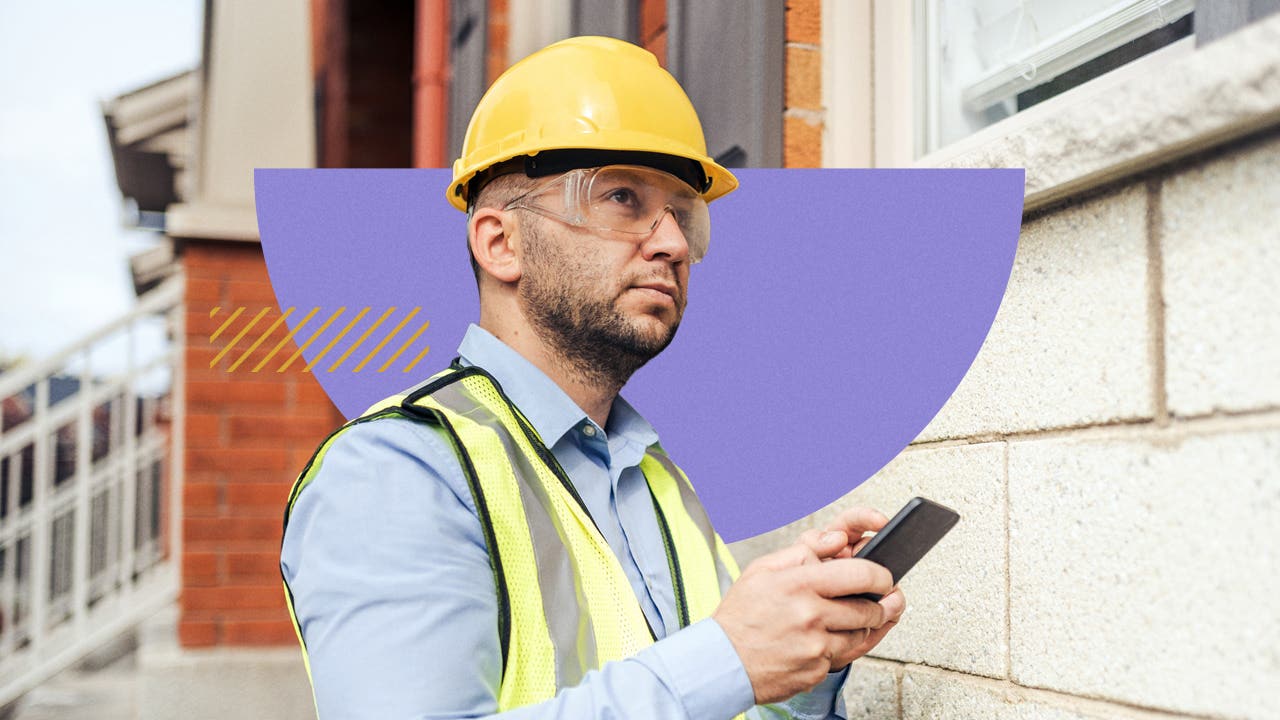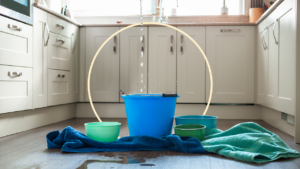What to expect from a home insurance inspection

Standard home inspections are common for new home purchases, but what happens when your home insurance company also asks to inspect your home? It’s nothing to be alarmed about. In fact, home insurance inspections are common when you buy a home, complete renovations or apply for coverage with a new carrier. In this guide, Bankrate’s team of insurance experts dive into what to expect if your provider requests a home insurance inspection, how to prepare and what happens if your property fails.
What is a home insurance inspection?
In a home inspection for insurance, a certified inspector will come out to your home to assess its risk potential for liability and future claims. The inspection will also provide specifics about the home to create a valuation, which is useful to ensure the dwelling coverage is adequate in the event of a major loss. After the inspector shares the results with your insurer, it will determine if coverage adjustments are needed and whether to continue writing your property insurance coverage.
Homeowners insurance inspections differ from a standard home inspection. During a home insurance inspection, inspectors will assess the home’s structure and appliances to help determine risk. Just like you can use standard home inspection results to decide whether to purchase the property, an insurance company can use an insurance inspection to adjust your premium, require you to fix issues and even cancel the policy if it deems your home too risky to insure.
Read more: What to do if your home insurance is canceled
| Home insurance inspection | Standard home inspection |
|---|---|
| Requested by home insurance company | Requested by potential home purchasers |
| Used to determine insurance risk and mitigate liability exposure | Used to determine quality of home to make purchase decision |
| Can be used to change coverage, adjust premium or deny coverage | Can be used to adjust purchase price, request amendments or walk away from home purchase |
| Is free to the homeowner | Is paid for by the potential home purchaser |
Who requires a home insurance inspection?
Insurance companies typically order home inspections for older homes and homes in areas more prone to major natural disasters like hurricanes, tornadoes and wildfires, although it can be done for many reasons or even randomly. If you have been with the same home insurer and have not had your home inspected recently, you may be required to have one completed prior to the next policy renewal period. If you are switching home insurance companies, the new property insurer may require a home insurance inspection to be completed within 90 days of the effective date of the homeowners insurance policy.
Lenders
Though lenders do not technically require home insurance inspections, you are typically required to purchase home insurance coverage as part of the mortgage approval process. Before you settle on the home or refinance an existing mortgage, you will likely have to supply proof of homeowners insurance. Purchasing a new property insurance policy or updating an existing policy could trigger a home insurance inspection.
Insurers
An insurance company will commonly require a home insurance inspection within the first 30–60 days of the policy effective date to ensure the application was completed truthfully and accurately regarding the value and risk of the home. The inspection results could be used to make changes to your dwelling coverage and may require you to address issues with your home identified during the inspection.
In some states, home insurance companies may conduct specified home insurance inspections. For example, if you live in hurricane-prone states along the Atlantic or Gulf Coast, an inspector may need to complete a wind mitigation inspection. This type of home inspection could result in reduced insurance premiums or credits if you make your home more resilient to windstorms by installing roof tie-downs, a wind-rated garage door or storm shutters. While a wind mitigation inspection is not state-regulated, your insurer may require it depending on your location.
What a home insurance inspection covers
Some home insurance inspections do not require the homeowner to be present, like an exterior-only inspection. The inspector will take pictures and measurements of the home’s exterior to complete their report. Sometimes, something as simple as a drone flyover will suffice. An interior inspection requires you to be present and will include photos and measurements of your home’s interior as well. Your insurer’s underwriters will review the inspector’s report to determine the next steps based on the condition of the home.
Home insurance inspections assess the condition of:
- Appliances (oven, stovetop, microwave, refrigerator, etc.)
- Attic
- Basement
- Carbon monoxide/smoke detectors
- Ceilings
- Chimney
- Doors
- Driveway
- Exterior structures (barn, garage, shed, pool, etc.)
- Fencing
- Flooring
- Garage doors
- Gutters
- HVAC
- Hot water heater
- Plumbing
- Porches/decks
- Roof
- Security system
- Signs of infestation
- Walls
- Windows
- Yard
The primary considerations of a home insurance inspection are what kind of maintenance, upkeep and liability risk is present with the dwelling and property. In other words, the insurance company wants to figure out how likely you are to file an expensive repair claim or be liable for an accident on your property. If you’re seen as a high-risk customer or the insurer doesn’t think you’re doing regular maintenance, they may drop you.
How to prepare for a home insurance inspection
There are several ways you can prepare for a home insurance inspection. Walking around the interior and exterior of your home, you may be able to spot issues that could come up and fix them before the inspection commences — or at least be aware so there are no surprises later.
Here are a few areas to assess when preparing for a home insurance inspection:
- Loose or missing shingles on the roof
- Unsecured gutters or debris inside and visible
- Cracks or loose bricks in a chimney
- Hanging branches over the home’s structures, especially dead limbs
- Cracks or leaks around doors, siding and windows
- Uneven sidewalks or chipped stairs, which could be a safety hazard
- Functionality of carbon monoxide and smoke detectors
- Pest or water damage in the attic or basement
- Any sign of leaks around plumbing fixtures
- Cracks or bubbling of the walls which could indicate water damage
- HVAC performance and filter condition
What happens if you fail a home insurance inspection
If the inspector finds issues with your home’s interior or exterior after a home insurance inspection, your insurance company may give you a deadline to fix them to continue coverage. If the insurance company deems your home too risky, they may cancel your property insurance policy.
If the inspection identifies fixable issues, you will have a certain amount of time to have them fixed. The insurance company will want proof of repairs, which could include receipts from work completed and pictures showing the finished project. Some damage may require a follow-up inspection.
If the decision is made to cancel your home insurance, your insurer will provide a cancellation date, which will give you some time to find a home insurance company willing to cover your property. If you cannot find a private insurer that’s willing to extend coverage, you may have to contact your state’s insurance department to find programs available for high-risk homes. Some states have Fair Access to Insurance Requirements (FAIR) Plans in place to help people who cannot get coverage otherwise.
If your home insurance inspection is for a property that you want to buy, the insurer may decline to offer you coverage. You can still request a policy from another carrier, but you may want to rethink your offer if you didn’t realize you were buying a fixer-upper.
Frequently asked questions
Why we ask for feedback Your feedback helps us improve our content and services. It takes less than a minute to complete.
Your responses are anonymous and will only be used for improving our website.
You may also like

Does homeowners insurance cover roof leaks?

How to choose the right, cheap home insurance for your budget

What to do if you are dropped from your home insurance

Is home insurance required? What homeowners need to know



